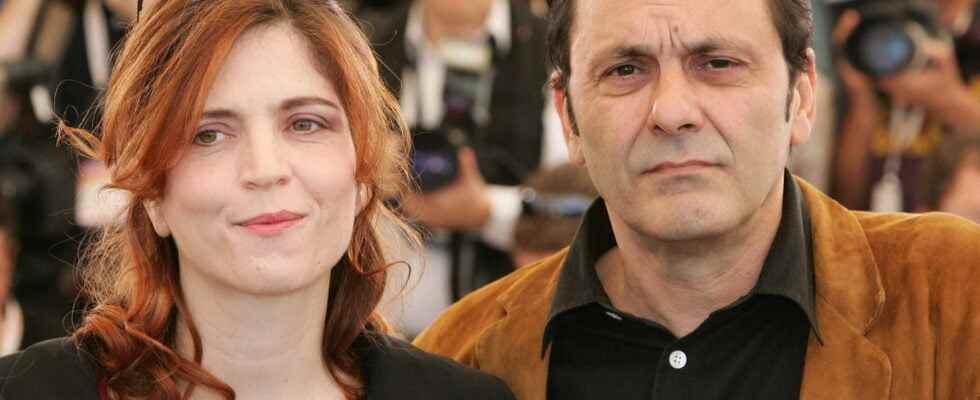JEAN-PIERRE BACRI. Jean-Pierre Bacri and Agnès Jaoui have formed an inseparable duo on the screen as in their lives. Their separation in 2012 did not prevent them from continuing their artistic collaboration.
[Mis à jour le 14 janvier 2022 à 20h45] For many years, the name of Jean-Pierre Bacri was inseparable from that of Agnes Jaoui. First on the boards and on the screen, the actors and screenwriters have formed an inseparable duo. Nicknamed the “JaBac” by Alain Resnais, they won four César for their collaborations. They formed a very discreet couple in the city from 1987 to 2012. And if they ended up breaking up, their cinema duo never suffered from this separation. As Jean-Pierre Bacri explained in 2015 in Version Femina. “I see no reason to stop. I will never find a better partner: she is a beautiful, intelligent woman and a very beautiful person”.
In 2014, Agnès Jaoui affirmed in the columns of Causette that the two companions did not want to stop working together. “We never wanted to get lost. We still love each other, but otherwise”. Coincidentally, the actress was giving an interview to World the day before the announcement of the death of Jean-Pierre Bacri, on January 18, 2021. She made these comments about him: “I would not have arrived there, of course, if I had not met Jean-Pierre Bacri.” She said that the actor was “someone who expressed what I felt without even having expressed it to myself; who had thoughts that struck me, relieved me, testified to common values, to a relationship to good and evil that I shared, with a conviction that amazed me because it was so unique!”
French actor and screenwriter, Jean-Pierre Bacri was born on May 24, 1951. He discovered the world of cinema as a child, thanks to his father. Alongside his studies to become an actor, he earns his living as an agent at the Olympia and writes plays. One of them, The Sweet Face of Love, won the Vocation Prize in 1979. For the first time in the cinema, he played the role of the anesthetist in Le toubib in 1979. He became famous two years later thanks to Alexandre Arcady’s film, Le grand pardon. He co-wrote screenplays with Agnès Jaoui (his partner) and both won the César for best screenplay four times, notably for Smoking/No Smoking. The couple is now separated but continues to write with four hands. Their last collaboration dates from 2013 with Au bout du conte where we find in particular Agathe Bonitzer or the singer Benjamin Biolay. Jean-Pierre Bacri also continued his “solo” career with more dramatic roles such as Before Dawn (2011). The actor recently found, on screen, almost 10 years after Les sentiments, the actress Isabelle Carré with whom he then fell in love for the second time at the cinema in Cherchez Hortense (2012).
From 1987 to 2012, Jean-Pierre Bacri shared the life of Agnès Jaoui with whom he worked on numerous occasions, whether in front of or behind the cameras on the screenplay. The couple, who never married and never had children, then separated in 2012 while remaining on very good terms. In an interview for Gala, Bacri spoke of his ex-girlfriend in these words: “Agnès, it is the great story of my life and I think it is mutual. We love each other. It is my soul mate. We are not together anymore”. With his companion Agnès Jaoui, Jean-Pierre Bacri won four Cesars for best screenplay for Smoking / No Smoking, Un air de famille, We know the song and The taste of others.
Jean-Pierre Bacri died on January 18, 2021 at the age of 69. The actor, whom we liked to see bitching in front of the cameras, had been suffering from cancer for several months, the nature of which has not been specified. Jean-Pierre Bacri had chosen to remain discreet about the disease that had been eating away at him for several months. Doctor Pierre Squara, a doctor who was part of the team trying to treat him, spoke on the subject on the BFMTV antenna. “We found him like in his films. He demanded to be treated like everyone else. He showed great courage, because the end was not easy. We had to negotiate. Sometimes he said no, so we had to argue. We had dialogues that were a bit like those in his films,” he recalled.
